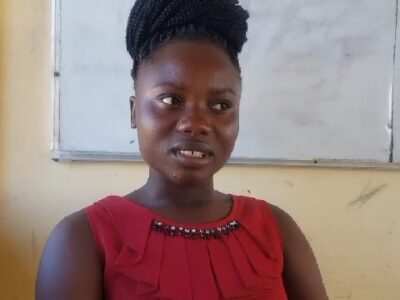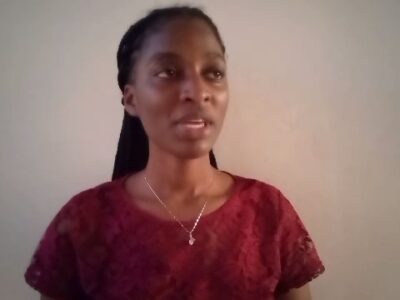Amidst the bustling activities of a typical Thursday afternoon at Hillside Girls Secondary School in Chipata district, Mickey Ndashe, a Computer Studies teacher at the institution, took a moment to advocate for the representation of marginalized and differently abled individuals in media coverage.
Ndashe urged mainstream media outlets to allocate more space for underprivileged groups, including the differently abled and rural communities.
“The current media coverage falls short of expectations. There’s a pressing need for equal representation of media freedom, especially for the differently abled and those residing in rural areas,” he emphasized.
Read More: Cyber security law hindering freedom of expression, digital rights —Students union leader (video)
In an interview with Zambia Monitor, Ndashe highlighted the challenges faced by individuals in rural areas, where access to media tools is limited.
“In rural settings, many lack access to technology like smartphones, and even for those who do, there’s often a lack of proficiency in operating them. Consequently, their exposure to media is primarily through community radio stations,” he explained.
Ndashe also noted that speaking out against the government often comes with political repercussions, hindering people from freely expressing their opinions on governance issues.
“While individuals have the right to voice their opinions on governance, there’s a climate of fear due to potential backlash. This suppresses open dialogue,” he added.
He further criticized the proposed taxation on online political content, arguing that it would disproportionately impact financially disadvantaged individuals.
“Political parties with substantial resources may navigate such taxes easily, whereas it becomes a barrier for ordinary citizens to participate in political discourse,” he remarked.
Regarding the protection of journalists and media proprietors, Ndashe acknowledged existing legal safeguards but stressed the need for continuous vigilance.
“Harassing journalists is a criminal offense, which is reassuring. However, we must remain vigilant to ensure their safety and independence,” he emphasized.
Echoing Ndashe’s sentiments, Andrew Zulu, Head of the Expressive Arts department at the school, representing the headteacher, highlighted the longstanding disparity in media access for rural areas in Zambia since independence in 1964.
“The inequitable distribution of network coverage has perpetuated a media gap, particularly in rural regions,” Zulu lamented.
He also underscored the importance of responsible freedom of expression, noting instances of abuse and intimidation.
“With every freedom comes responsibility. Some individuals misuse their freedom, while others feel constrained by legal repercussions, inhibiting genuine dialogue through media channels,” Zulu said.
Additionally, Zulu voiced concerns about the potential ramifications of taxing online political content on ordinary citizens’ participation in political discourse.
“Taxing individuals for expressing political opinions online would unfairly burden average Zambians and impede their democratic engagement,” he said.
Zulu concluded by urging journalists to exercise discretion and self-censorship in their editorial decisions, fostering responsible journalism.
WARNING! All rights reserved. This material, and other digital content on this website, may not be reproduced, published, broadcast, rewritten or redistributed in whole or in part without prior express permission from ZAMBIA MONITOR.













Comments